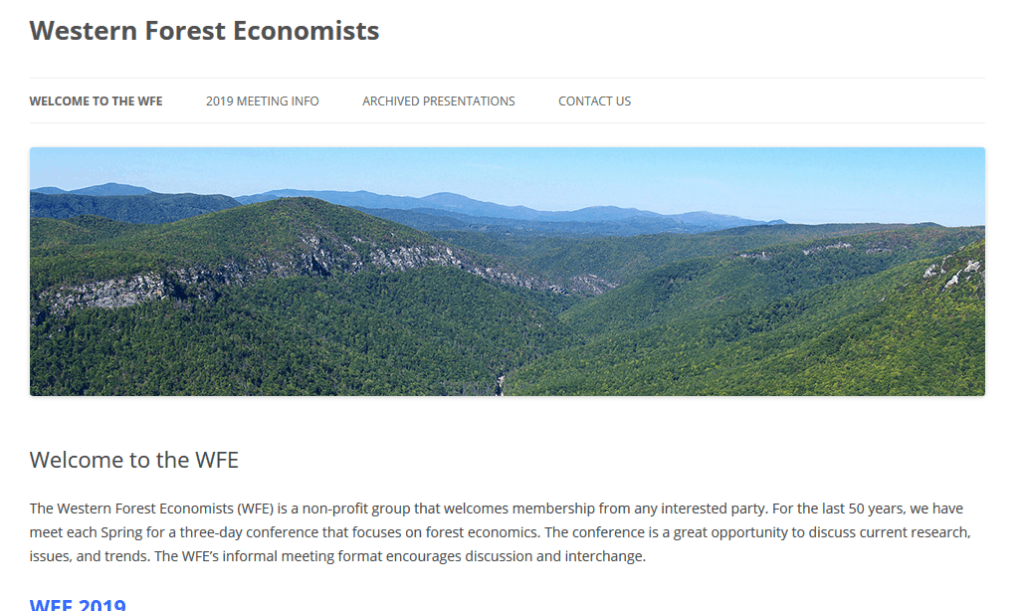 You may remember some weeks ago, I asked the question “why doesn’t California export pellets, since they have much material to remove in fuels reduction, and the BC folks seem to be doing it and making money?” Well, the first thing I did was to look at the faculty at University of California, Berkeley, where I noticed a lack of people whose CV’s would indicate that they would know. I followed the path up the coast to OSU, where the key people were once again retired. The best information I received was from the FS PNW Station (current employees) and UBC (another retired fellow). There was an active person at UW who didn’t return my email. Now I’m not saying that a lack of forest economists leads to a lack of information about economic opportunities, but the question was in my mind. Who decided not to hire people in that discipline and why? What disciplines did they pick instead? And do they ask users of scientific information (research stakeholders) when they make those decisions?
You may remember some weeks ago, I asked the question “why doesn’t California export pellets, since they have much material to remove in fuels reduction, and the BC folks seem to be doing it and making money?” Well, the first thing I did was to look at the faculty at University of California, Berkeley, where I noticed a lack of people whose CV’s would indicate that they would know. I followed the path up the coast to OSU, where the key people were once again retired. The best information I received was from the FS PNW Station (current employees) and UBC (another retired fellow). There was an active person at UW who didn’t return my email. Now I’m not saying that a lack of forest economists leads to a lack of information about economic opportunities, but the question was in my mind. Who decided not to hire people in that discipline and why? What disciplines did they pick instead? And do they ask users of scientific information (research stakeholders) when they make those decisions?
Nevertheless, there are people working assiduously on these topics so here’s a shout out to them. Here is a link to presentations from the Western Forest Economists Meeting in June of this year.
But here’s what I remember about some of them, admittedly through the rose-colored filter of nostalgia. I’d be interested in others’ thoughts.
Disagreement is Good and Welcomed
Two economist jokes that illustrate that point. “Ronald Reagan used to say that if trivial pursuit were designed by economists, it would have 100 questions and 3,000 answers.” or “President Truman once said he wants an economic adviser who is one handed. Why? Because normally the economists giving him economic advice state, “On one hand and on the other…”. (For more economist jokes, see this site)
Most of them I ran into held their opinions lightly, and gave them as opinions. Perhaps economics is a discipline that engenders humility because projections are often.. well..wrong and obviously so (think of climate models.. they may be wrong but only experts know). One of (Dr. Tom) Mills’ favorite expressions, when I worked with him, was “reasonable people could disagree” about a topic we were discussing. I don’t think I hear that expression much anymore. Perhaps because more people in forest policy come from a legal background, where people may be trained to be less overtly humble about their opinions (and use strong language about why people who disagree are wrong).
Economists As Policy Experts: Just The Facts or Assumptions
Second, at the time, forest policy was mostly the domain of forest economists. I remember an apocryphal story also about (Dr. Tom) Mills. Back in the day, there was the idea that if folks generated a large amount of information in long-term analysis projects like ICEBMP, Northwest Forest Plan and so on, that people would agree on the science and then, built on that, plus monitoring key things, this would reduce controversy and litigation about land management actions. Like I said, I heard this story and I can’t say that it’s true, that in one of those lengthy summary documents, Mills crossed out all the “shoulds”, with the argument that scientists don’t make normative claims. He was definitely swimming against the tide in the Northwest at the time.
I also remember (Dr. Richard) Haynes saying that it was interesting how different disciplines derived their knowledge claims. For example, at one point he mentioned to me that some of the wildlife biologists he was working with (on ICEBMP?) did not use sensitivity analysis on their assumptions. Sensitivity analysis being an approach when you have uncertainty and you make assumptions and you want to know how sensitive the answer is to your assumption. It seems like a good thing to do, but with no economists around, will be asking those kinds of cross-disciplinary questions?
It’s a sociology of science question as to who or what entities select research topics and approaches, which ultimately determine “what science says.” They seem to be located in funding agencies and hiring at universities (no doubt influenced by what funding is available).
Do businesses really need university economists to tell them where a buck can be made?